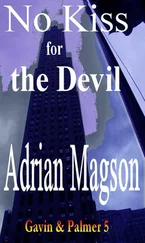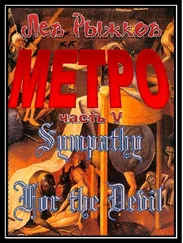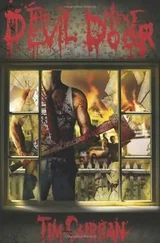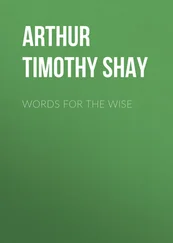Now, when Keawe was in the street, with the bottle under his arm, he began to think. “If all is true about this bottle, I may have made a losing bargain,” thinks he. “But perhaps the man was only fooling me.” The first thing he did was to count his money; the sum was exact-forty-nine dollars American money, and one Chili piece. “That looks like the truth,” said Keawe. “Now I will try another part.”
The streets in that part of the city were as clean as a ship’s decks, and though it was noon, there were no passengers. Keawe set the bottle in the gutter and walked away. Twice he looked back, and there was the milky, round-bellied bottle where he left it. A third time he looked back, and turned a corner; but he had scarce done so, when something knocked upon his elbow, and behold! it was the long neck sticking up; and as for the round belly, it was jammed into the pocket of his pilot coat.
“And that looks like the truth,” said Keawe.
The next thing he did was to buy a cork-screw in a shop, and go apart into a secret place in the fields. And there he tried to draw the cork, but as often as he put the screw in, out it came again, and the cork as whole as ever.
“This is some new sort of cork,” said Keawe, and all at once he began to shake and sweat, for he was afraid of that bottle.
On his way back to the port-side, he saw a shop where a man sold shells and clubs from the wild islands, old heathen deities, old coined money, pictures from China and Japan, and all manner of things that sailors bring in their sea-chests. And here he had an idea. So he went in and offered the bottle for a hundred dollars. The man of the shop laughed at him at the first, and offered him five; but indeed, it was a curious bottle-such glass was never blown in any human glass-works, so prettily the colours shown under the milky white, and so strangely the shadow hovered in the midst; so, after he had disputed awhile after the manner of his kind, the shopman gave Keawe sixty silver dollars for the thing, and set it on a shelf in the midst of his window.
“Now,” said Keawe, “I have sold that for sixty which I bought for fifty-so, to say truth, a little less, because one of my dollars was from Chili. Now I shall know the truth upon another point.”
So he went back on board his ship, and, when he opened his chest, there was the bottle, and had come more quickly than himself. Now Keawe had a mate on board whose name was Lopaka.
“What ails you?” said Lopaka, “that you stare in your chest?”
They were alone in the ship’s forecastle, and Keawe bound him to secrecy, and told all.
“This is a very strange affair,” said Lopaka; “and I fear you will be in trouble about this bottle. But there is one point very clear-that you are sure of the trouble, and you had better have the profit in the bargain. Make up your mind what you want with it; give the order, and if it is done as you desire, I will buy the bottle myself; for I have an idea of my own to get a schooner, and go trading through the islands.”
“That is not my idea,” said Keawe; “but to have a beautiful house and garden on the Kona Coast, where I was born, the sun shining in at the door, flowers in the garden, glass in the windows, pictures on the walls, and toys and fine carpets on the tables, for all the world like the house I was in this day-only a storey higher, and with balconies all about like the king’s palace; and to live there without care and make merry with my friends and relatives.”
“Well,” said Lopaka, “let us carry it back with us to Hawaii, and if all comes true, as you suppose, I will buy the bottle, as I said, and ask a schooner.”
Upon that they were agreed, and it was not long before the ship returned to Honolulu, carrying Keawe and Lopaka, and the bottle. They were scarce come ashore when they met a friend upon the beach, who began at once to condole with Keawe.
“I do not know what I am to be condoled about,” said Keawe.
“Is it possible you have not heard,” said the friend, “your uncle-that good old man-is dead, and your cousin-that beautiful boy-was drowned at sea?”
Keawe was filled with sorrow, and, beginning to weep and to lament he forgot about the bottle. But Lopaka was thinking to himself, and presently, when Keawe’s grief was a little abated, “I have been thinking,” said Lopaka. “Had not your uncle lands in Hawaii, in the district of Kau?”
“No,” said Keawe, “not in Kau; they are on the mountain-side-a little way south of Hookena.”
“These lands will now be yours?” asked Lopaka.
“And so they will,” said Keawe, and began again to lament for his relatives.
“No,” said Lopaka, “do not lament at present. I have a thought in my mind. How if this should be the doing of the bottle? For here is the place ready for your house.”
“If this be so,” cried Keawe, “it is a very ill way to serve me by killing my relatives. But it may be, indeed; for it was in just such a station that I saw the house with my mind’s eye.”
“The house, however, is not yet built,” said Lopaka.
“No, nor like to be!” said Keawe, “for though my uncle has some coffee and ava and bananas, it will not be more than will keep me in comfort; and the rest of that land is the black lava.”
“Let us go to the lawyer,” said Lopaka; “I have still this idea in my mind.”
Now, when they came to the lawyer’s, it appeared Keawe’s uncle had grown monstrous rich in the last days, and there was a fund of money.
“And here is the money for the house!” cried Lopaka.
“If you are thinking of a new house,” said the lawyer, “here is the card of a new architect, of whom they tell me great things.”
“Better and better!” cried Lopaka. “Here is all made plain for us. Let us continue to obey orders.”
So they went to the architect, and he had drawings of houses on his table.
“You want something out of the way,” said the architect. “How do you like this?” and he handed a drawing to Keawe.
Now, when Keawe set eyes on the drawing, he cried out aloud, for it was the picture of his thought exactly drawn.
“I am for this house,” thought he. “Little as I like the way it comes to me, I am in for it now, and I may as well take the good along with the evil.”
So he told the architect all that he wished, and how he would have that house furnished, and about the pictures on the wall and the knick-knacks on the tables; and he asked the man plainly for how much he would undertake the whole affair.
The architect put many questions, and took his pen and made a computation; and when he had done he named the very sum that Keawe had inherited.
Lopaka and Keawe looked at one another and nodded.
“It is quite clear,” thought Keawe, “that I am to have this house, whether or not it comes from the devil, and I fear I will get little good by that; and of one thing I am sure, I will make no more wishes as long as I have this bottle. But with the house I am saddled, and I may as well take the good along with the evil.”
So he made his terms with the architect, and they signed a paper; and Keawe and Lopaka took ship again and sailed to Australia; for it was concluded between them they should not interfere at all, but leave the architect and the bottle imp to build and to adorn that house at their own pleasure.
The voyage was a good voyage, only all the time Keawe was holding in his breath, for he had sworn he would utter no more wishes, and take no more favours from the devil. The time was up when they got back. The architect told them that the house was ready, and Keawe and Lopaka took a passage in the Hall, and went down Kona way to view the house, and see if all had been done fitly according to the thought that was in Keawe’s mind.
Читать дальше












